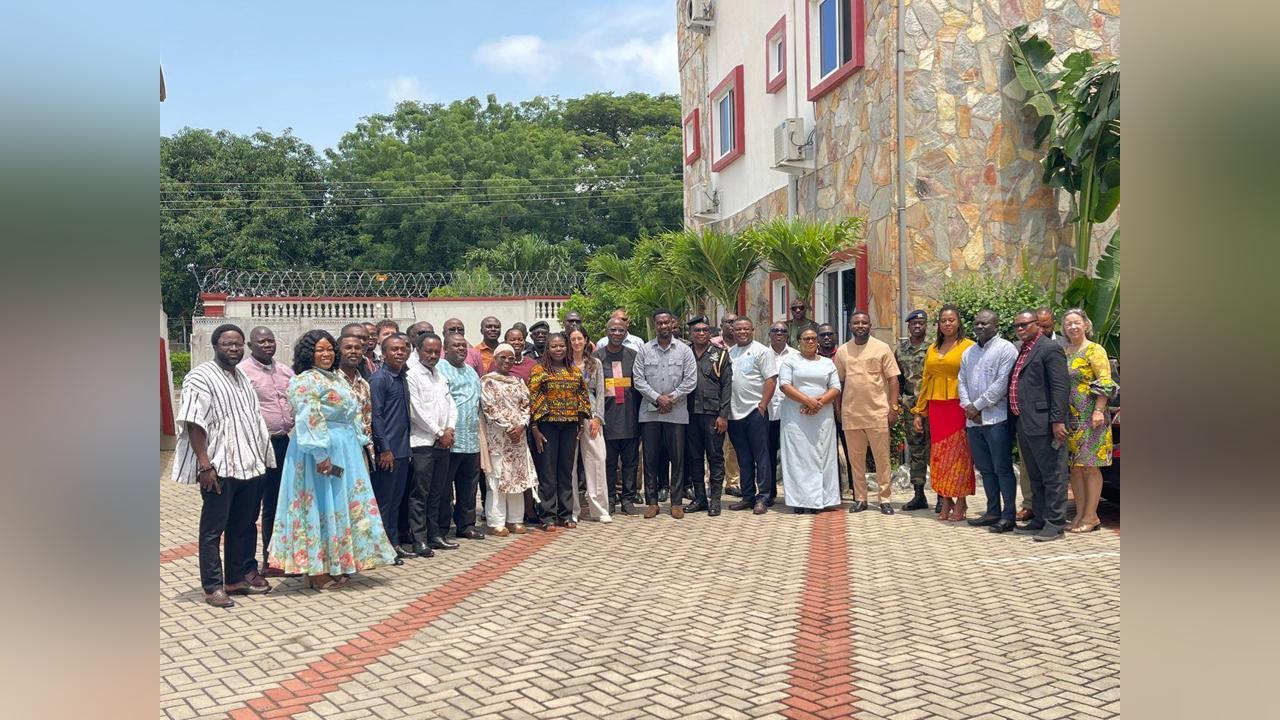Africa-Press – Ghana. Dr. Joseph Bikanyi Kuyon, the Director-General, National Disaster Management Organisation (NADMO), has called for coordinated actions to address perennial floods and droughts in the country.
He said Ghana’s annual economic losses had been estimated at over 200 million dollars, with the agricultural and services sectors bearing the brunt of the damage.
He said: “Within this amount, the agricultural sector accounted for an estimated 20 million dollars per year through flood-related losses, the service sector loses 35 million dollars followed by the housing and transportation sectors”.
Dr. Kuyon said this in a speech read on his behalf by Mr. Albert Alalzuuga Akuka, Deputy Director-General in charge of livelihoods, at a two-day workshop organised by NADMO for its partners.
The workshop was centered on the harmonisation and prioritisation of recommendations from the Pacific Disaster Centre (PDC) and Capacity for Disaster Risk Initiative (CADRI) reports.
These reports were informed by the country diagnosis and baseline assessment for Ghana to identify country capacity and areas needing improvement to ensure a disaster resilient country.
Dr. Kuyon said climate-change droughts were noted to affect eight per cent of Ghana’s population and could increase to 28 per cent, equivalent to 10 million Ghanaians per year.
“Overall flooding during the decade between 2013 and 2023 resulted in economic losses of 1.7 billion dollars adversely affecting at least 110,813 households,” he added.
According to the World Bank, environmental degradation costs Ghana a whopping 6.3 billion dollars, where under this, air pollution accounts for two billion dollars and water pollution takes three per cent of the Gross Domestic Product (GDP).
He said the specific event of the June 3, 2015 floods and gas explosion in Accra was estimated to have cost 55 million dollars in damages, noting that these figures represented direct losses and might not fully account for the long-term direct impacts.
Dr. Kuyon said these impacts included disruption of livelihoods, health costs from water-borne diseases, loss of productivity, displacement of populations and strain on social welfare systems.
He said these costs were substantial, and that the PDC/CADRI reports projected increases by 2050 due to factors such as climate change, rapid urbanisation, inadequate infrastructure, weak disaster risk reduction capacities, low investments and threats from negative human behaviors.
“It is my view that the foregoing imposes a responsibility on we the stakeholders to work in more synchronised and effective ways to mitigate the impending danger,” he stressed.
He said the reports identified a number of challenges, including lack of effective planning and coordination, inadequate resources and logistics, weak infrastructure and systems, societal and behavioral factors and climate change impacts that had hindered effective preparedness, response and recovery efforts.
The Director-General added that these challenges resulted from a combination of systemic issues, resource constraints and human behavior factors, and that it was important to work towards finding the appropriate solutions to them.
Dr. Kuyon said NADMO was seeking synergy in their attempts to fight disaster in Ghana in a more effective and timely manner.
He said addressing the challenges required a multi-faceted approach involving strengthened institutional frameworks, increased investment, enhanced coordination and collaboration among all stakeholders, and sustained efforts in community engagement and public education.
For More News And Analysis About Ghana Follow Africa-Press







